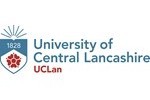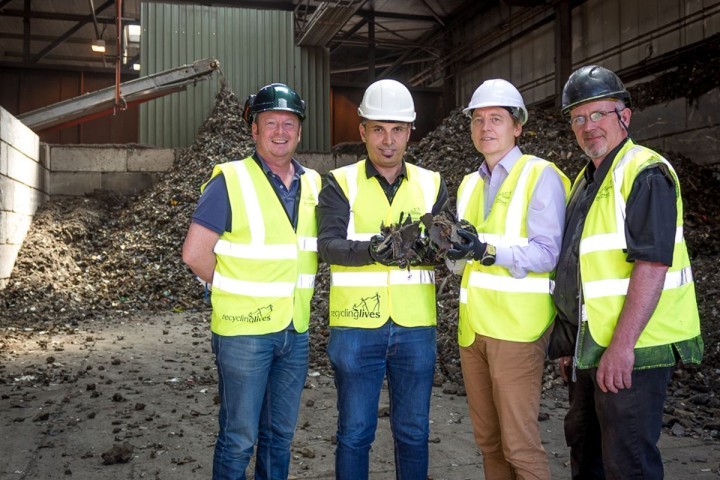Energy and waste management are becoming increasingly important areas for businesses in all sectors. Successful sustainability strategies can generate a real competitive advantage.
The Centre for Waste Management at the University of Central Lancashire (UCLan) uses all its expertise and access to low carbon technologies through a host of research projects to help businesses gain that edge.
It specialises in the areas of resource optimisation, carbon footprint reduction, waste minimisation, life cycle assessment and energy efficiency.
The centre also has access to leading academics in multiple disciplines across the University, with all the benefits that this can bring to commercial enterprises.
Prof Karl Williams, director of the centre, explains: “The centre was established in 2002 to provide a focus for existing waste, resource and environmental research, consultancy and course provision.
“We are committed to the management of waste and developing resource efficiency to create a positive impact on the many associated environmental and commercial issues. A recent Recycling Lives project typifies our commitment.”
The award-winning project with the Preston based business highlights the way that business and university collaborations can open up major new commercial opportunities.
The Knowledge Transfer Partnership (KTP) collaboration between UCLan and Recycling Lives has enabled the company to make potential annual savings of £1.5m.
KTP is a UK-wide programme that for more than four decades has been helping businesses improve their competitiveness and productivity through the better use of knowledge, technology and skills.
The aim of the collaboration was to find a way to divert from landfill and reuse the estimated 1.2 million tonnes of residue left over every year after the company shreds around 100,000 vehicles at the end of their lives.
A team, led by prof Karl Williams, director of the Centre for Waste Management, and Dr Ala Khodier, innovations engineer at Recycling Lives and UCLan associate, undertook a two-year study.
The team then created a process to transform the residue, made up of foams, rubber, fibres and textiles, into electrical energy.
In addition, they identified metals retained in the residue, which had previously been overlooked, that are now being recovered and returned to the market – generating a lucrative income stream.
It is estimated that Recycling Lives, which uses its recycling activity to support its own projects on prisoner rehabilitation and homelessness, can generate 1,200 megawatts of electricity and make savings of £1.5m a year and provide long-term employment.
A Recycling Lives and UCLan joint venture is now looking to commercialise the project through a £750,000 research facility based in Preston.
In addition, last year the project was named Most Innovative Contribution to Business University Collaboration at the prestigious Times Higher Education (THE) awards. Prof Williams says the Recycling Lives project, “far exceeded what had been planned at the outset.”
He adds: “This is a fantastic example of what can be achieved when an organisation links with an academic institution.
“It really highlights how universities can work in a positive way with a business, to help them work in a more robust, profitable and more environmentally friendly way.
“The success of this partnership has worked so well that the University and Recycling Lives are continuing to develop other partnership opportunities.
“The outcome of this partnership has been transferred across the organisation in terms of research-led teaching and the realisation of academic research into a novel and bespoke commercial solution.
“There’s a saleable product. We’re producing new electrical energy and reducing the amount of waste going to landfill.”
Prof Williams has seen his career evolve from heavy industry into environmental solutions for waste. He has extensive experience of a range of technologies associated with resource recovery.
The centre is also playing a major role in the Making Carbon Work (MaCaW) project which is making a real impact in Lancashire.
The UCLan and industry collaboration aims to help small businesses overcome the challenges and barriers they face when looking to move to a low carbon model.
The project looks to support them as they work to implement low energy practices which will not only reduce their “carbon burden” but will also deliver cost savings.
As businesses grow and enter new supply chains it is becoming a common requirement for them to demonstrate their commitment to cutting their carbon footprint.
Prof Williams says it is important that SMEs engage in carbon reduction. He explains: “Businesses in Lancashire will need to change the way they view carbon emissions.”
For information on how the Centre for Waste Management can help your business contact 01772 895970 or email [email protected]
- To read this feature in full and access further Lancashire business news, advice and analysis subscribe to Lancashire Business View magazine or join the LBV Hub from just £2.50 per month. Click here to subscribe now.
Enjoyed this? Read more from University of Central Lancashire





















